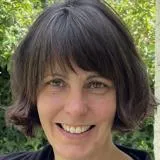
Professor Heather King
Professor in Science Education
Research interests
- Education
Biography
Professor Heather King’s research examines the ways in which educators foster learner engagement with science across many contexts including schools, museums, the natural environment, and non-formal spaces such as maker-spaces. In particular, her work explores social and environmental justice concerns with respect to science education practice.
Heather is co-chair of the Science and Technology Education Research Group at King’s College London and teaches modules in STEM education leadership, in STEM Making and Creating, and in Education in Arts and Cultural Settings.
She is also the Vice President for Education at the British Science Association.
Research interests
- Equitable engagement of learners in science
- Pedagogies to support environmental and climate change education
- Teaching and Learning through Making
- Teaching and learning in museums and galleries and other out of school settings
For details of Heather's publications please see her Research Staff Profile.
Teaching
Heather leads the following modules for the MA programme in STEM Education:
- STEM Education: Making and Creating
- Leading Practices in STEM Education
She also contributes to the teaching and supervision of students on the Education in Arts and Cultural Setting MA programme.
PhD supervision
Heather supervises students working across the STEM education landscape in both formal and informal settings.
Current PhD students include
- Julie Robinson: How does regionality affect UK curriculum policy and what does this mean for environmental education provision?
- Anthea Ameer: Investigating STEM Trajectories: Insights from Alumni of Specialist Math Schools
- Shukri Mohamed: Computational Thinking and Making in the primary setting.
- Tiantian Wang: Students' identity dynamics and negotiation mechanisms in SSIs-based instruction at Chinese lower secondary schools.
- Alex Tak: The value of shared frameworks and indicators in understanding the impact of museums on wider society.
- Lydia Vasiliki Kapournioti: Learning through installation art interactions: an exploration of innovative resources and approaches for designing gallery and museum experiences.
- Zsuzsa Lugosi: The ways young children (6–11-year-olds) connect to nature at the Natural History Museum.
- Munira Elmi: Perceptions of air pollution, health and COVID in minority ethnic communities in White City, West London Recently completed doctoral students
- Sophie Perry: How do environmental education programmes influence young people's perceptions of their role in environmental action?
- Ye Cao: Applying the lens of science capital to understand student engagement in China.
- Marie Hobson: Evaluation Utilisation: How can evaluation findings impact Museum policy and practice?
- Brad Irwin: The international work of UK national museums.
- Kate Greer: Governmentalities of Climate Change Education: Perspectives from History, Policy and Position-holders
- Rachel Cook: Exploring the role of family context in shaping students’ resources for outdoor science: a study of Nigerian -Yorùbá and Sierra Leonean- Krio students in London
- Vicky Wong: The relationship between school science and mathematics education
Research
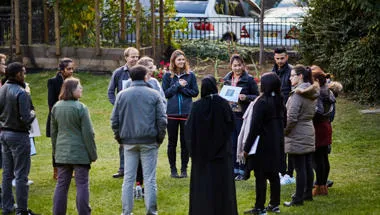
Centre for Research in Education in Science, Technology, Engineering & Mathematics (CRESTEM)
Centre for Research in Education in Science, Technology, Engineering & Mathematics (CRESTEM)

Understanding environmental education in secondary schools
This project explored the impact of the curriculum changes on the current state of environmental education provision across secondary schools in England.
Project status: Completed
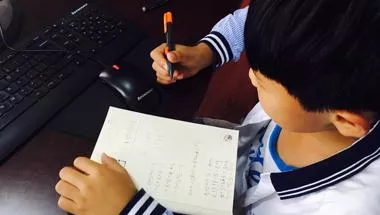
COM n PLAY Science
Learning science the fun and creative way: coding, making and play as vehicles for informal science learning in the 21st century.
Project status: Ongoing
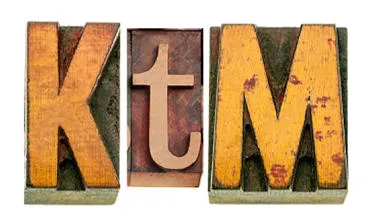
Knowing through Making
Knowing through Making Research Group for the Centre for Education

Research and Education for Socio-Ecological Transformations (RE-SET)
RE-SET provides a home for critical interdisciplinary scholarship and innovative pedagogical practices that promote socio-ecological transformation in and through education.

King's Climate Research Hub
Studying climate change through the relationship between science, policy and culture.
News
Eco-making project awarded from Education for Sustainability Projects Fund 2025-26
A group of academics and students working towards an embodied understanding of the climate crisis have been named one of the recipients of the Education for...

King's academics tackle: How could science educators respond to socio-ecological issues?
On 13 November 2024, colleagues in the Centre for Research in the Education in Science, Technology, Engineering and Mathematics (CRESTEM) were joined by...
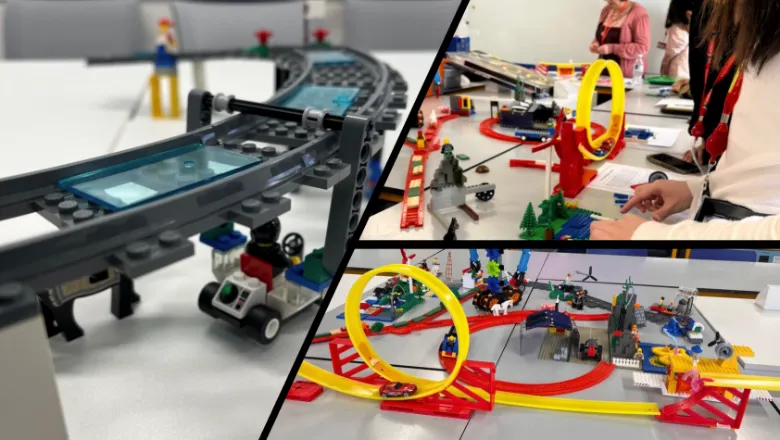
CRESTEM welcomes international researchers to discuss the use of fine-grained sampling methods in STEM education research
The Centre for Research in Education in STEM recently welcomed an international research team at King’s College London to share ideas about microgenetic...
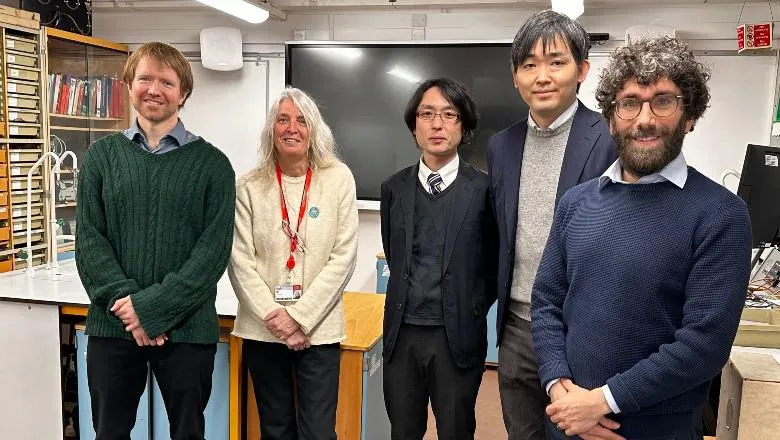
King's student reaches finals of Mayor's entrepreneur contest with science subscription box idea
Chemistry teacher and King’s student Francis Jones earned a place in the finals of the Mayor’s Entrepreneur 2022 programme competition with his STEM@Home...
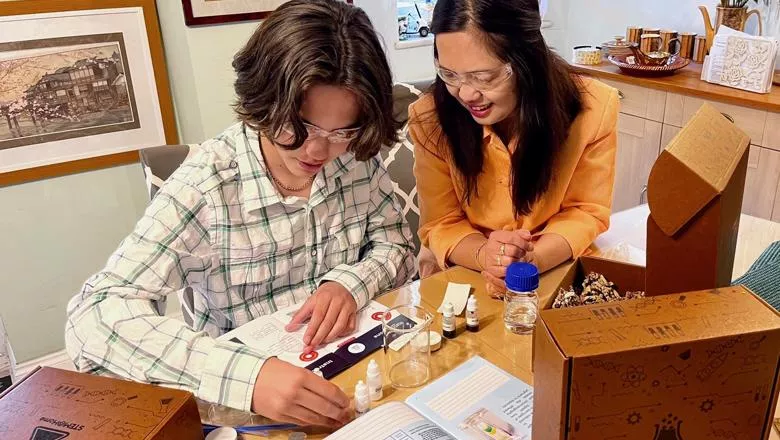
Dr Heather King wins Supervisory Excellence Award
Dr Heather King recognised for her work with PhD candidates in the School of Education, Communication & Society
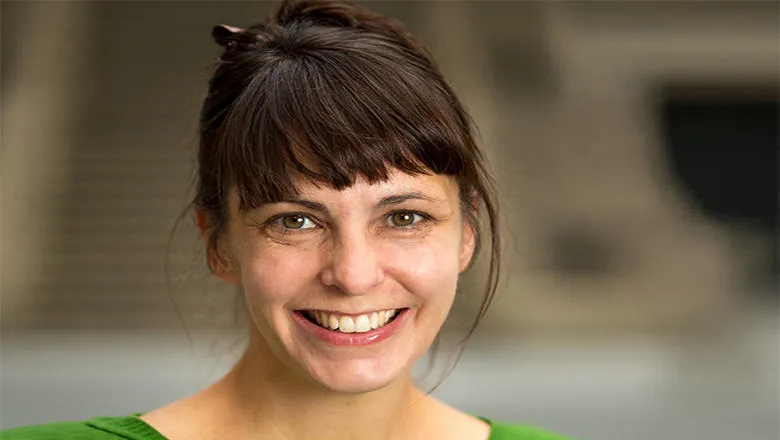
Award-winning sustainability champions at ECS
ECS is committed to sustainability

Coding and making our way to a better STEM future
KCL’s Dr Heather King and Dr Elizabeth Rushton are currently conducting research in making and coding spaces across the capital.
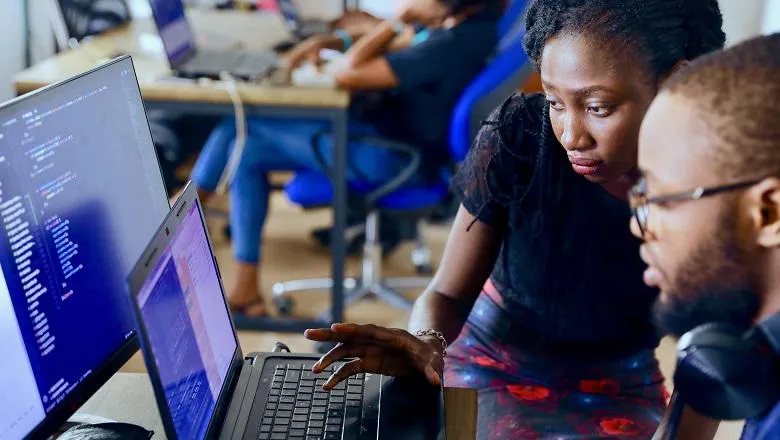
New Teaching Approach Developed at King's Proven to Increase Interest in Science
Researchers from the Enterprising Science project, based at the School of Education, Communication & Society, shared their findings at the National STEM...
Events
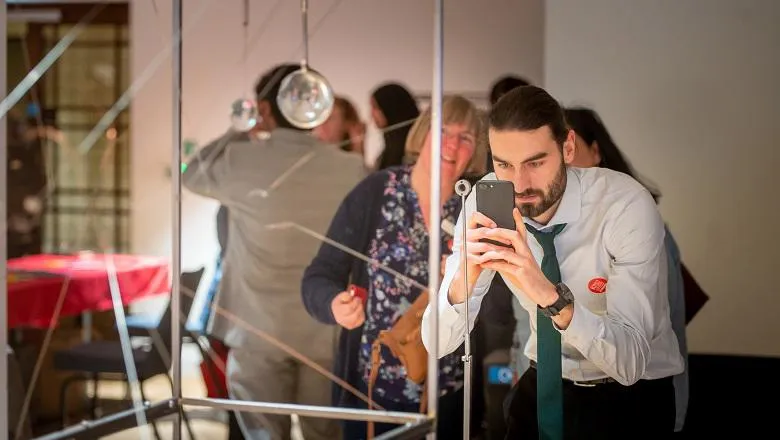
Inclusion in STEM education and informal spaces: reflections on science capital
This roundtable will address the question of how to enhance inclusivity and accessibility of STEM education, through insights from the UK and Brazil.
Please note: this event has passed.
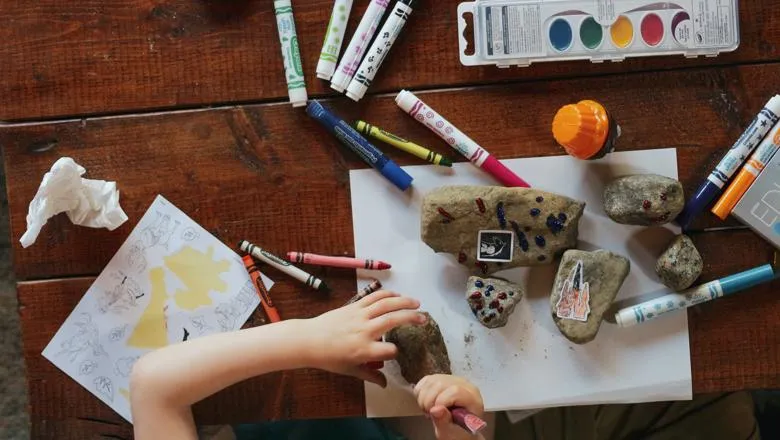
The vital role of creativity and play in non-formal and informal STEM learning
A webinar on the role of creativity and play in non-formal and informal STEM learning
Please note: this event has passed.
Features
Alumni Voices: 'Be the change you want to see' - The story of Francis Jones
Francis Jones (MA STEM Education, 2022) is the founder of STEM@Home, a tech startup that seeks to bridge the accessibility gap in science education by...
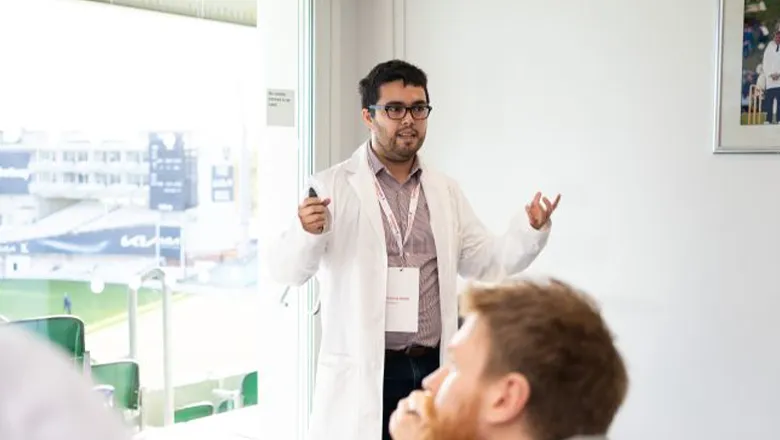
How industry and academia are joining forces to equip STEM teachers for classrooms of the future
The first cohort of students has just completed a new MA in Science, Technology, Engineering and Mathematics (STEM) Education that prepares educators to...
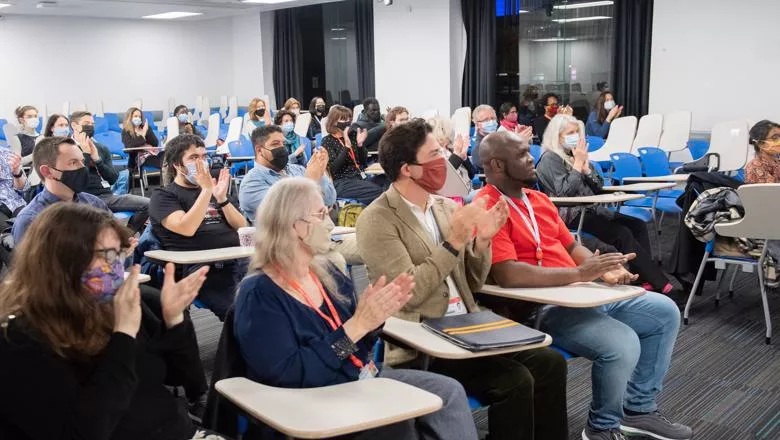
IWD 2020: Women in the School of Education, Communication & Society
Five women from across the School of Education, Communication & Society give an insight into their work and studies.
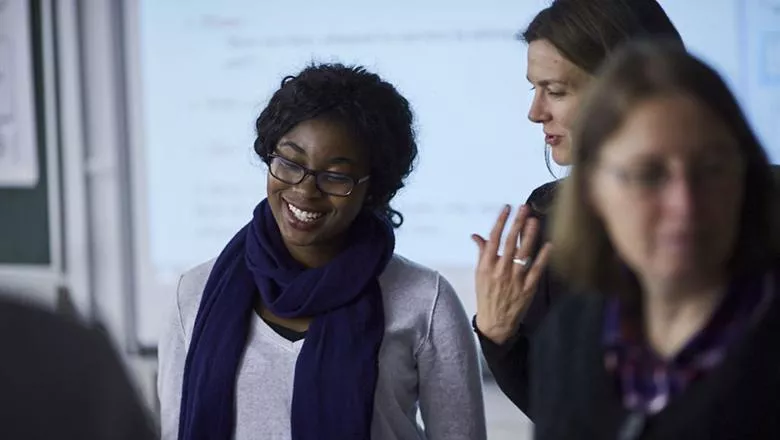
Spotlight
Making the STEM sector more equitable
The ASPIRES Research projects, initiated at King’s by Prof Louise Archer, have shown that interventions built on raising interest in science are not enough....
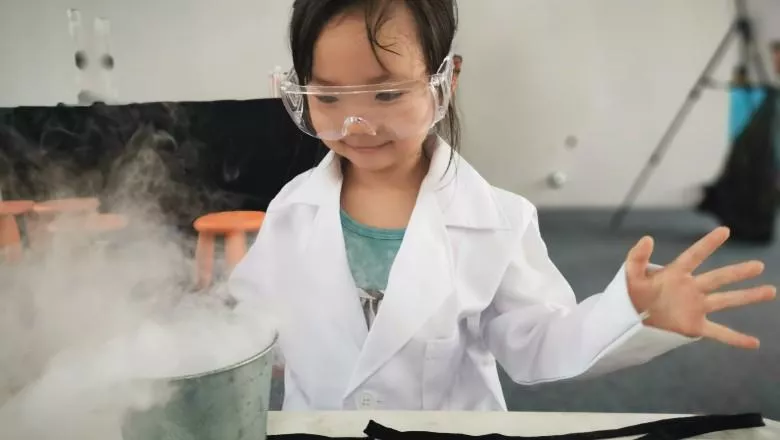
Research

Centre for Research in Education in Science, Technology, Engineering & Mathematics (CRESTEM)
Centre for Research in Education in Science, Technology, Engineering & Mathematics (CRESTEM)

Understanding environmental education in secondary schools
This project explored the impact of the curriculum changes on the current state of environmental education provision across secondary schools in England.
Project status: Completed

COM n PLAY Science
Learning science the fun and creative way: coding, making and play as vehicles for informal science learning in the 21st century.
Project status: Ongoing

Knowing through Making
Knowing through Making Research Group for the Centre for Education

Research and Education for Socio-Ecological Transformations (RE-SET)
RE-SET provides a home for critical interdisciplinary scholarship and innovative pedagogical practices that promote socio-ecological transformation in and through education.

King's Climate Research Hub
Studying climate change through the relationship between science, policy and culture.
News
Eco-making project awarded from Education for Sustainability Projects Fund 2025-26
A group of academics and students working towards an embodied understanding of the climate crisis have been named one of the recipients of the Education for...

King's academics tackle: How could science educators respond to socio-ecological issues?
On 13 November 2024, colleagues in the Centre for Research in the Education in Science, Technology, Engineering and Mathematics (CRESTEM) were joined by...

CRESTEM welcomes international researchers to discuss the use of fine-grained sampling methods in STEM education research
The Centre for Research in Education in STEM recently welcomed an international research team at King’s College London to share ideas about microgenetic...

King's student reaches finals of Mayor's entrepreneur contest with science subscription box idea
Chemistry teacher and King’s student Francis Jones earned a place in the finals of the Mayor’s Entrepreneur 2022 programme competition with his STEM@Home...

Dr Heather King wins Supervisory Excellence Award
Dr Heather King recognised for her work with PhD candidates in the School of Education, Communication & Society

Award-winning sustainability champions at ECS
ECS is committed to sustainability

Coding and making our way to a better STEM future
KCL’s Dr Heather King and Dr Elizabeth Rushton are currently conducting research in making and coding spaces across the capital.

New Teaching Approach Developed at King's Proven to Increase Interest in Science
Researchers from the Enterprising Science project, based at the School of Education, Communication & Society, shared their findings at the National STEM...
Events

Inclusion in STEM education and informal spaces: reflections on science capital
This roundtable will address the question of how to enhance inclusivity and accessibility of STEM education, through insights from the UK and Brazil.
Please note: this event has passed.

The vital role of creativity and play in non-formal and informal STEM learning
A webinar on the role of creativity and play in non-formal and informal STEM learning
Please note: this event has passed.
Features
Alumni Voices: 'Be the change you want to see' - The story of Francis Jones
Francis Jones (MA STEM Education, 2022) is the founder of STEM@Home, a tech startup that seeks to bridge the accessibility gap in science education by...

How industry and academia are joining forces to equip STEM teachers for classrooms of the future
The first cohort of students has just completed a new MA in Science, Technology, Engineering and Mathematics (STEM) Education that prepares educators to...

IWD 2020: Women in the School of Education, Communication & Society
Five women from across the School of Education, Communication & Society give an insight into their work and studies.

Spotlight
Making the STEM sector more equitable
The ASPIRES Research projects, initiated at King’s by Prof Louise Archer, have shown that interventions built on raising interest in science are not enough....

